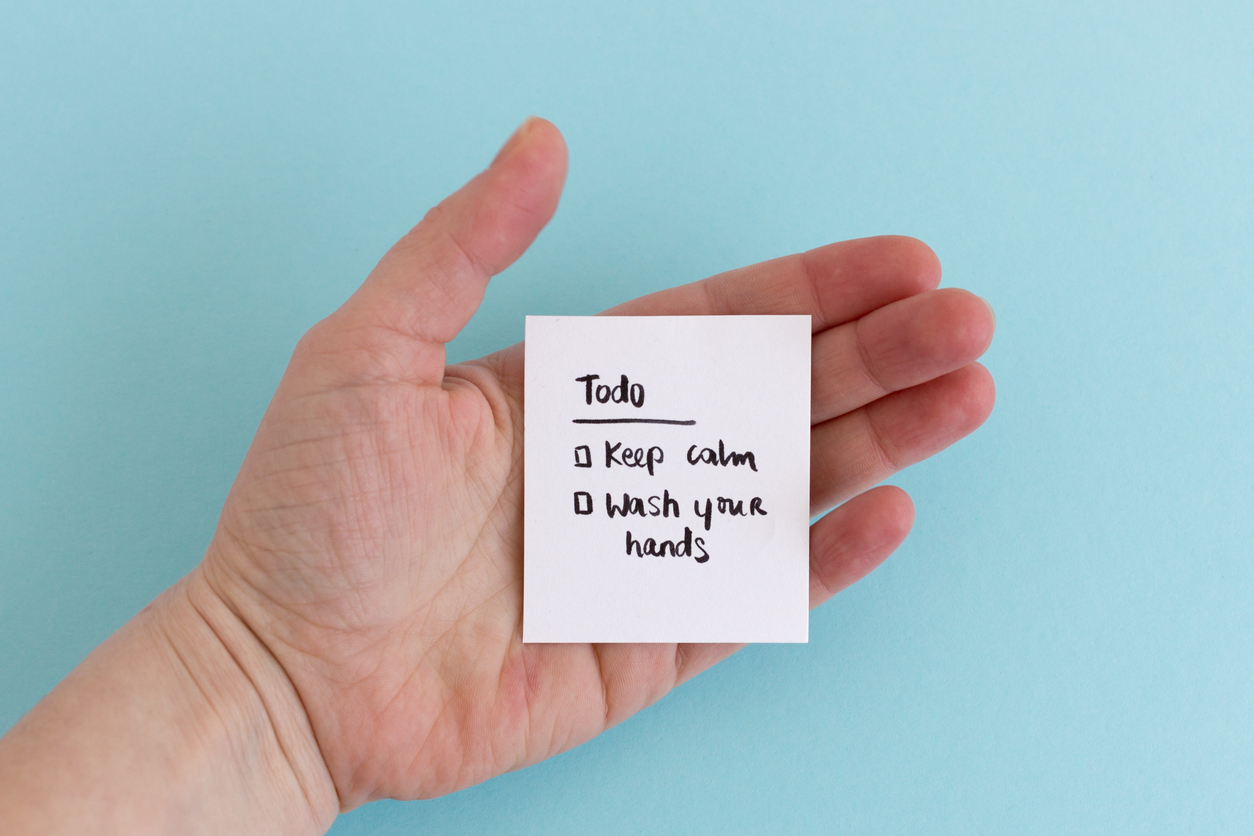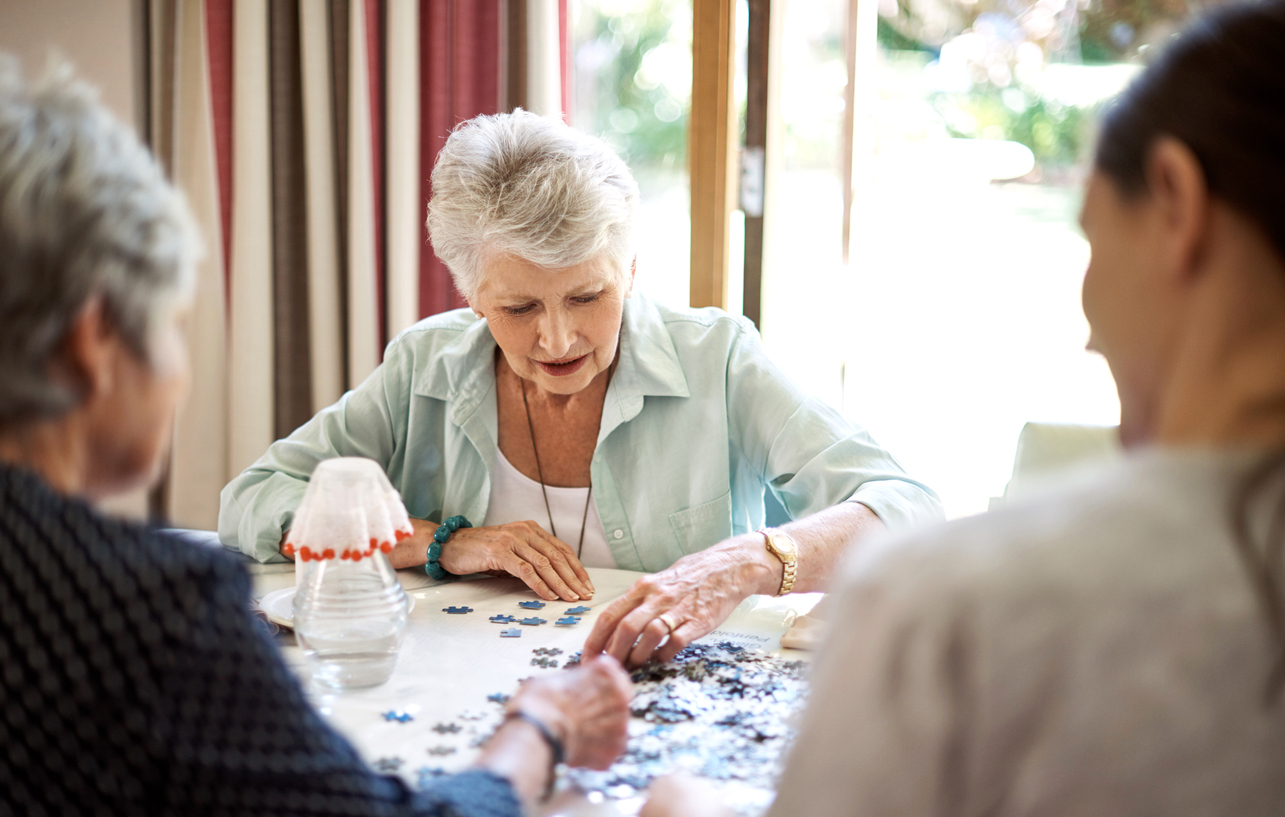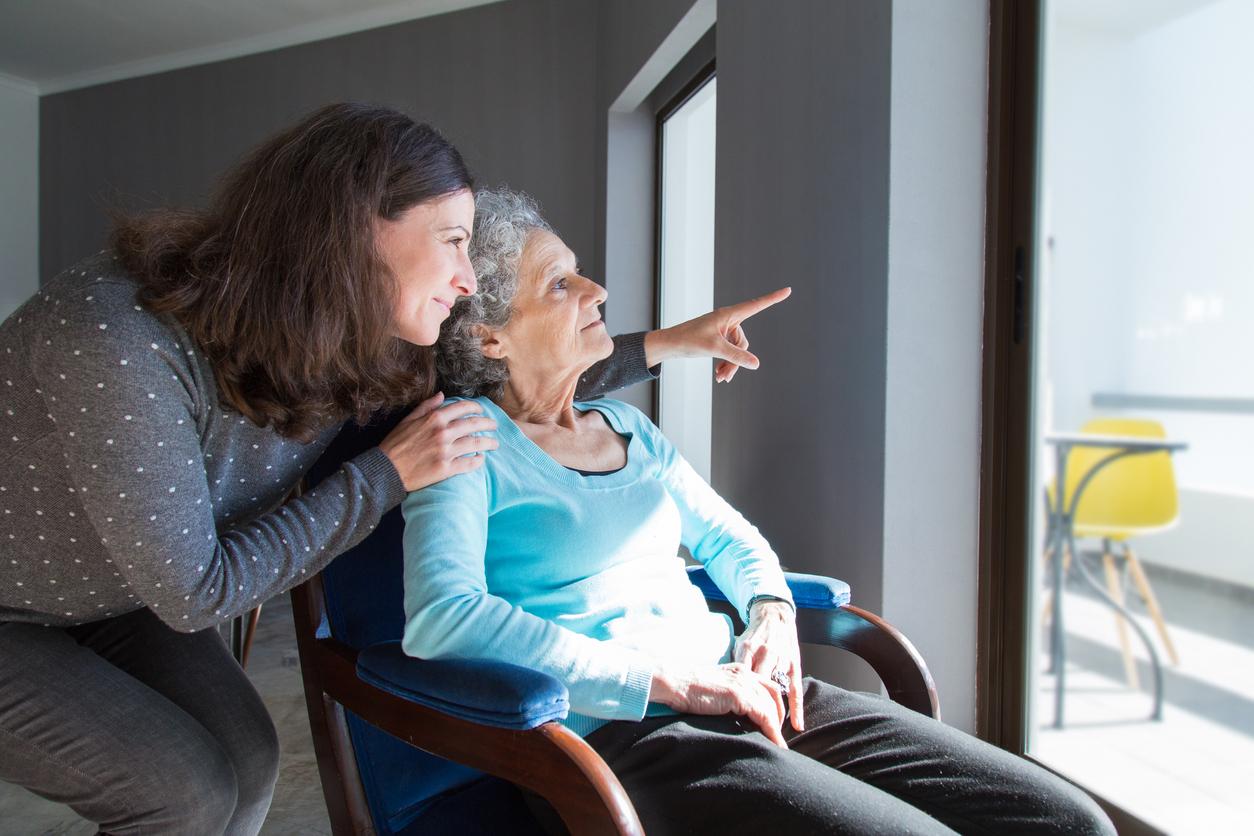If you’re caring for a loved one with Alzheimer’s disease or another dementia, you know caregiving is challenging on a normal day—let alone in the middle of the coronavirus COVID-19 situation.
Most people with dementia are over age 65, and older adults run a greater risk for developing serious complications from COVID-19, according to the Centers for Disease Control and Prevention (CDC). This is because immune systems naturally weaken with age, and many older adults have other health conditions that make it harder to fight off disease and recover from illness.
As a registered nurse and clinical educator for HopeHealth, I want help you and your loved one stay as safe and stress-free as possible. Here are seven tips:
1. Understand how COVID-19 spreads.
COVID-19 is a new disease and experts are still learning about it. Here’s what we know from the CDC about how COVID-19 spreads:
- The virus that causes COVID-19 is shared mainly between people who are in close contact with each other (within about six feet), through respiratory droplets. If someone near you sneezes or coughs, the droplets may land in your mouth or nose, which can infect you.
- It also is possible you can get COVID-19 by touching an object or surface that has the virus on it, and then touching your mouth, nose or eyes.
- Some people without symptoms may be able to spread the virus.
2. Practice good hygiene and use visual reminders to wash hands frequently.
Follow the CDC’s guidelines to protect yourself and others.
• Wash your hands regularly with soap and water for 20 seconds.
• Try not to touch your face with unwashed hands.
• Cover your coughs and sneezes with your elbow or a tissue, throw away the tissue immediately, and wash your hands.
• Once a day, clean and disinfect faucets, sinks, phones, keyboards, countertops, light switches and other frequently touched surfaces.
Remembering to practice good hand hygiene can be difficult for someone with dementia. To remind your loved one, post a note or picture of hand-washing by the sink or on the mirror.
Post a note or picture of hand-washing by the sink or on the mirror.
If washing with soap and water is too difficult for your loved one, apply hand sanitizer to your own hands and rub theirs in a gentle hand massage. Be sure to use sanitizer with at least 60 percent alcohol.

3. Step outside, but remember social distancing and face covers.
Yes, social distancing is the new normal, but that doesn’t require you to stay cooped up indoors. Fresh air and exercise can give you and your loved one the physical and mental boost you need to get through these tough times.
Try to take a walk with your loved one at least once a day.
Try to take a walk with your loved one at least once a day, if possible. But do it safely.
If you don’t have a back yard or choose to walk in public, be sure to steer clear of others. You want maintain a distance of at least six feet.
While outside, you might wish to wear at simple cloth face covering, which can prevent the spread of the virus and remind you not to touch your face. You can make one at home using common materials like a scarf or bandana. The CDC urges you not to use surgical or N-95 masks, which are in short supply for health care professionals and first responders.
4. Make a plan for staying at home.
Right now home is the safest place for everyone to be until this situation ends. Make sure you have a plan for:
- Medications. You will need adequate supplies of routine medications for ongoing conditions likes blood pressure and diabetes. Contact your local pharmacy and see if they can deliver these to your home.
- Food. Most grocery stores are delivering to people’s homes. If you need to shop yourself, wear a cloth face covering and stock up so you can limit your trips to the market.
- Your backup caregiver. If you get sick from COVID-19, another flu or even the common cold, who will care for your loved one while you recover? It’s important to have a backup plan, so talk to your family and friends.
To remain healthy and dependable for your loved one, it’s critical that you take care of yourself.
5. Limit TV news time.
It’s important to stay informed, but too much TV can be upsetting to a person with dementia.
First, excessive stimulation from the TV’s lights, sounds and colors can upset your loved one’s sleeping patterns and mood. Second, people with dementia cannot always distinguish TV stories from reality.
Get your news updates, and then change the channel to something uplifting like the Hallmark channel, light-hearted shows or even your own home movies.
Better yet, turn the TV off! You can read, listen to music, do a puzzle, cook, or play a game.

6. Reminisce about old times.
Remembering your family’s good times together is comforting for everyone and especially for people with dementia. Asking your loved one about the old days is also a great way to learn your family history.
Dementia-related memory loss happens in retrograde, which means your loved one loses the most recent memories first. With this in mind:
- Let your loved one guide the conversation. Ask about where they grew up, their parents and siblings. Focus on their childhood, adolescence and young adulthood.
- Spark conversation by looking through old photographs together.
- Avoid detailed updates on recent family events, which can bring sadness if your loved one does not recall young family members.
7. Take care of yourself.
To remain healthy and dependable for your loved one, it’s critical to care for yourself.
Ask your family to prop up the phone at the dinner table so you can “join” them for a virtual family meal!
- Drink lots of water, get plenty of sleep, and eat as healthy as possible. Grocery stores are still well-stocked with fresh fruits and vegetables, so ask a family member or neighbor to bring you some.
- Stay connected to your family and friends via phone, texting and video chat. Video chat is a great way to “watch” your grandchildren play or have them read stories aloud to you. Ask them to prop up the phone at the dinner table so you can “join” them for a virtual family meal!
- Ask for professional help. Many counselors, health care providers and support groups are caring for people online or through video conferencing. HopeHealth now has virtual support groups for dementia caregivers!
Although the COVID-19 situation is unsettling, it won’t last forever. Our community is pulling together in wonderful ways, and HopeHealth is here for you, too!
Lisa Wasson, RN, is a clinical educator for HopeHealth and a certified trainer for the End of Life Nursing Education Consortium (ELNEC) and the Positive Approach® to Care (PAC) for dementia.

